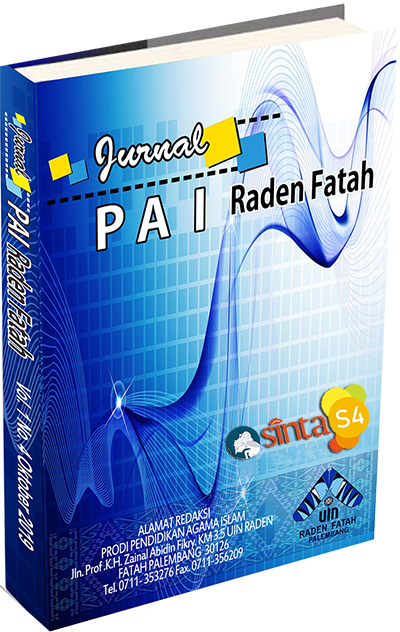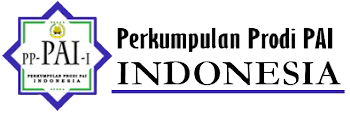Analisis Literasi Moderasi Beragama dalam Pembelajaran Aqidah Akhlak melalui Model Problem Based Learning (PBL)
DOI:
https://doi.org/10.19109/pairf.v7i1.27344Keywords:
Religious Moderation Literacy, Problem Based Learning, Aqidah AkhlakAbstract
This study aims to analyze religious moderation literacy in the Aqidah Akhlak subject through the Problem Based Learning (PBL) model at MTs Darul Ulum Budi Agung. The method used is a quasi-experimental design with a pretest-posttest control group. Data collection techniques included observation, interviews, and documentation. Data analysis followed the Miles and Huberman model, consisting of three phases: data reduction, data presentation, and conclusion drawing. Observations described the implementation of the halaqah method as an effort to enhance students' religious moderation literacy. Data were collected through a religious moderation literacy test conducted before and after implementing the PBL model. The results showed a significant increase in religious moderation literacy in the experimental group compared to the control group. The average pretest score for the experimental group was 65, which increased to 85 in the posttest, while the control group only increased from 64 to 70. Data analysis confirmed the effectiveness of PBL in fostering students' engagement and critical thinking. Instrument validation showed high results in readability (89%), clarity (86%), content suitability (91%), practicality (87%), and reliability (0.86). The implementation of the PBL model proved effective in enhancing religious moderation literacy by encouraging active participation and critical thinking among students. These findings contribute to the development of instructional models in Aqidah Akhlak education by providing empirical evidence of PBL’s role in strengthening religious moderation literacy. Based on these findings, it is recommended that the PBL model be more widely implemented in Aqidah Akhlak education and other subjects related to character education and religious moderation.
References
Firdiansyah, t. H. “Internalisasi nilai-nilai moderasi beragama dalam pembelajaran pendidikan agama islam melalui model problem based learning.” Jurnal pendidikan dan pemikiran islam 7, no. 2 (2023): 292–303.
Nurman ginting, h. H. “Implementasi konsep pendidikan islam terpadu di sekolah islam terpadu ulul ilmi islamic school kota medan.” Al-muaddib :jurnal ilmu-ilmu sosial dan keislaman, 2020, 293–304.
Nurman ginting, r. P. “emperkuat nalar teologi islam moderat dalam menyikapi pandemi covid-19 di pimpinan ranting pemuda muhammadiyah bandar pulau pekan.” Martabe : jurnal pengabdian masyarakat, 2021, 30–40.
Setyawan, Dodiet Aditya. Hipotesis Dan Variabel Penelitian. Jakarta: CV Tahta Media Group, 2021.
Situmorang, R. P. Integrasi Literasi Sains Peserta Didik Dalam Pembelajaran Sains, 2016.
Suartamizi, and Syarnubi Syarnubi. “Strategi Pengembangan Kompetensi Pedagogik Guru Rumpun PAI Di MTs. Mu’alliminislamiyah Kabupaten Musi Banyuasin.” Tadrib: Jurnal Pendidikan Agama Islam 8, no. 1 (2022).
Sugiyono. Metode Penelitian Kuantitatif, Kualitatif, Dan R&D, 2019.
———. Metode Penelitian Kuantitatif. Cetakan II. Bandung: Alfabeta, 2022.
Syarnubi, Muhamad Fauzi, Baldi Anggara, Septia Fahiroh, Annisa Naratu Mulya, Desti Ramelia, Yumi Oktarima, and Iflah Ulvya. “Peran Guru Pendidikan Agama Islam Dalam Menanamkan Nilai-Nilai Moderasi Beragama.” In In Prosiding Seminar Nasional 2023, 112–17, 2023.
Syarnubi, Syarnubi. “Hakikat Evaluasi Dalam Pendidikan Islam.” Jurnal PAI Raden Fatah 5, no. 2 (2023).
Tedy, A. “Literasi Moderasi Beragama (Urgensi Dan Implementasi Dalam Pendidikan Era 4.0 Dan 5.0.” Jurnal Kajian Ilmu Dan Perpustakaan, 2022.
Wulan, N. S. “Pengaruh Literasi Membaca Terhadap Pemahaman Moderasi Beragama Mahasiswa PGSD.” Jurnal Basicedu, 2022.












.png)


1.png)



